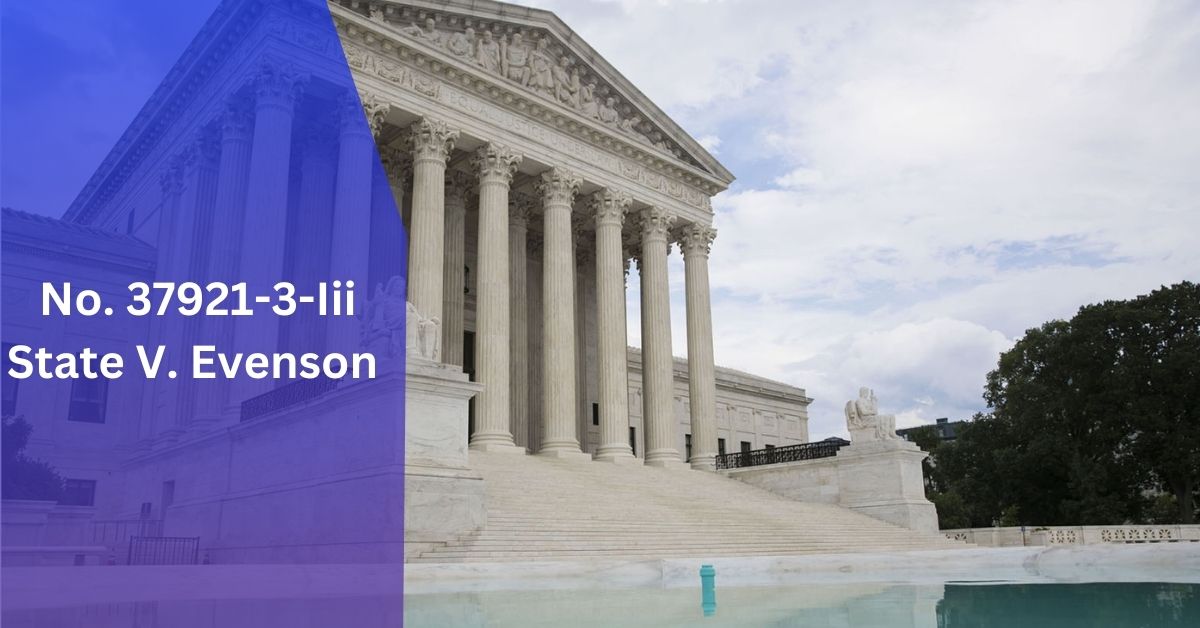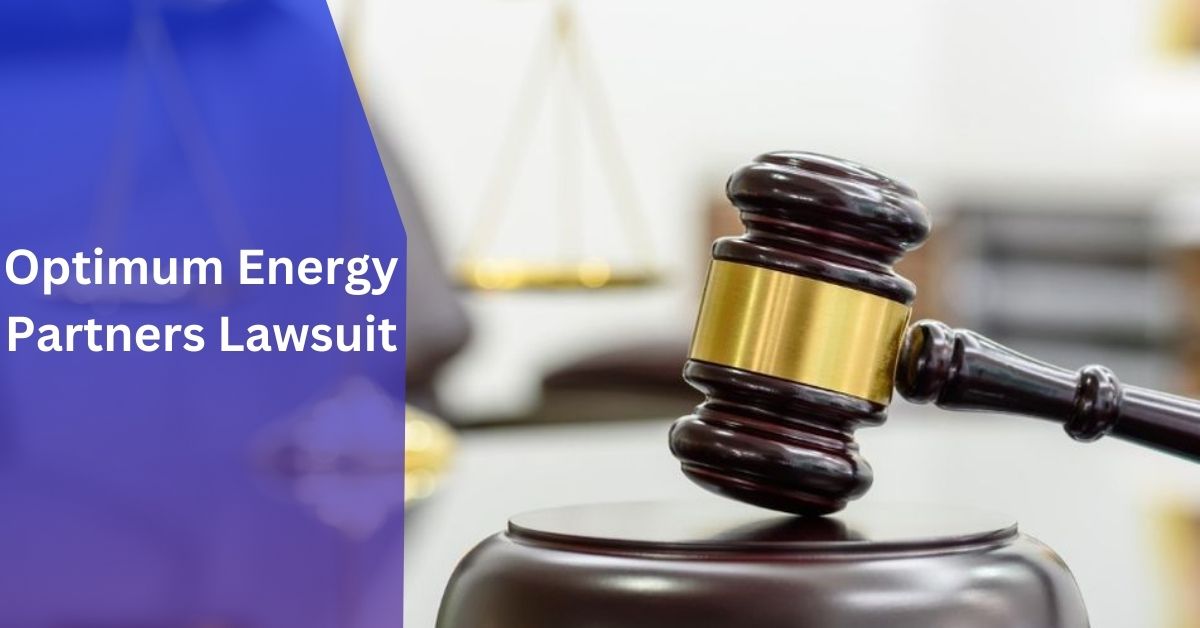In the complex landscape of legal proceedings, each case contributes to shaping judicial principles and setting legal precedents. The case “State v. Evenson,” designated by Case No. 37921-3-III, is a notable example that highlights significant aspects of legal interpretation and justice.
This article provides an in-depth examination of the case, including its background, legal arguments, court decisions, and implications for the legal system.
What Is Case No. 37921-3-Iii?
Case No. 37921-3-III refers to a legal case known as “State v. Evenson.” This case involves criminal charges filed by the state of Washington against a person named Evenson. The case was brought to court to address specific allegations or criminal activities attributed to Evenson. It is part of the legal process where the state’s prosecutors present their evidence, and the defendant has the opportunity to respond.
Background Of The Case:
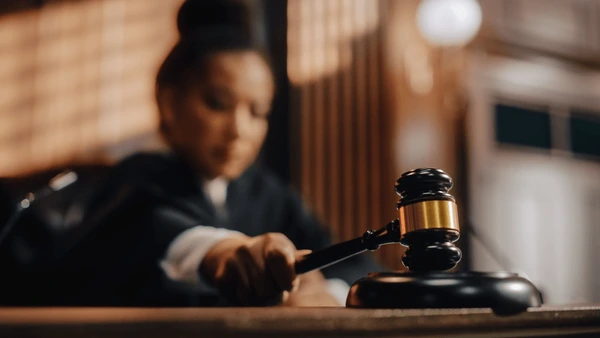
Overview of the Case
The case “State v. Evenson” centers around a criminal matter where the state of Washington brought charges against the defendant, Evenson. The specifics of the charges, the nature of the crime, and the circumstances leading to the legal proceedings are pivotal in understanding the case’s complexity and its impact.
Parties Involved
- Plaintiff: The State of Washington, representing the interests of the public and upholding the law.
- Defendant: Evenson, who faced charges in this case, was subject to legal scrutiny and judicial review.
Initial Proceedings
The case originated in the lower courts where initial hearings and legal arguments were presented. Understanding these early stages provides insight into the development of the case and the legal issues at play.
Legal Arguments And Issues:
Key Legal Arguments
The crux of “State v. Evenson” involved several key legal arguments. These arguments were presented by both the prosecution and the defense, addressing critical aspects of the law, evidence, and interpretation.
- Prosecution’s Argument: The prosecution aimed to prove the defendant’s guilt based on evidence and legal statutes pertinent to the case.
- Defense’s Argument: The defense countered by challenging the prosecution’s evidence and presenting arguments in favor of the defendant’s innocence or reduced culpability.
Also Read: 234/479.4 – Understanding The Significance!
Legal Issues at Stake
The case raised important legal issues such as the interpretation of statutory laws, the admissibility of evidence, and the application of judicial precedents. These issues are crucial in understanding the court’s decisions and the case’s broader legal significance.
How Did The Appellate Court Review The Case?
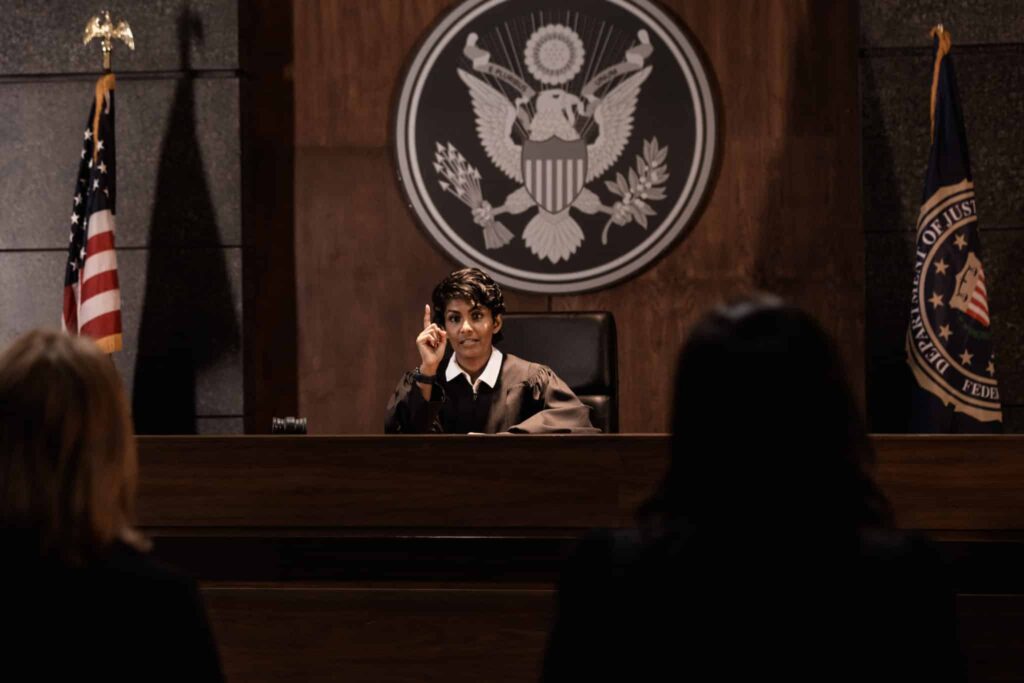
The appellate court reviewed the case by examining the trial court’s decision to ensure it followed the law correctly. They looked at whether any legal mistakes were made during the trial, such as improper use of evidence or errors in applying the law.
The appellate court did not re-evaluate the facts of the case but focused on whether the trial was conducted fairly and according to legal standards. Based on this review, they could either agree with the trial court’s decision, overturn it, or send the case back for a new trial if they found significant errors.
Court Decisions And Rulings:
Trial Court Decision
- What Happened in the Trial Court: The trial court made the first decision based on the evidence and arguments from both sides. This included deciding if the defendant was guilty or not and, if guilty, what the punishment should be. The sentence could involve prison time, fines, or other penalties.
- Why It Matters: The trial court’s decision is crucial because it sets the initial judgment and outlines the legal consequences for the defendant.
Appeals and Higher Court Rulings
If one party disagrees with the trial court’s decision, they can appeal to a higher court, which reviews the trial for any legal errors. The appellate court can uphold the original decision, overturn it, or order a new trial. These appellate decisions are crucial as they correct mistakes, refine legal principles, and ensure the law is applied fairly in future cases.
What Was The Outcome Of The Trial Court Decision?
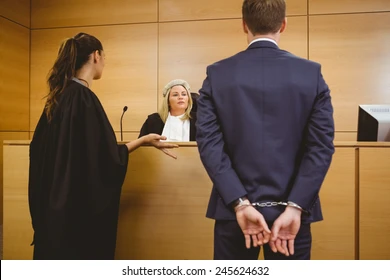
The trial court’s decision in the case of State v. Evenson resulted in a conviction, where the defendant, Evenson, was found guilty of the charges brought against him. The court’s ruling was based on the evidence and legal arguments presented during the trial. This decision was challenged by the defense, leading to an appeal where the appellate court reviewed the trial’s conduct and the fairness of the verdict.
Implications And Significance:
Impact on Legal Precedents
“State v. Evenson” contributes to the body of legal precedents by clarifying legal principles and influencing future cases. The case’s outcome and judicial reasoning help shape the application of law in similar circumstances.
Also Read: AMV33X – The Cutting-Edge Component Shaping Tomorrow’s Technology!
Broader Legal and Social Implications
The case also has broader implications for the legal and social landscape. It affects how laws are interpreted and applied, influencing public perception of justice and legal processes.
FAQ’s:
1. What were the main legal issues in “State v. Evenson”?
The main legal issues included the interpretation of statutory laws, admissibility of evidence, and application of judicial precedents.
2. How did the appellate court review the case?
The appellate court reviewed the trial court’s decision for legal errors or misinterpretations and provided a higher judicial perspective on the case.
3. What are the broader implications of the case?
The case influences legal precedents and affects how laws are interpreted and applied in similar cases, impacting both the legal system and public perception of justice.
4. Who were the parties involved in the case?
The parties involved were the State of Washington (plaintiff) and Evenson (defendant).
5. What is the significance of the case in the legal field?
The case contributes to the understanding of judicial principles and legal precedents, shaping future legal interpretations and applications.
6. How does “State v. Evenson” affect future legal proceedings?
The case sets a precedent for similar legal matters, influencing how laws are interpreted and applied in future cases.
7. Were there any notable legal arguments presented in the case?
Yes, the prosecution and defense presented key legal arguments related to evidence, statutory interpretation, and the defendant’s culpability.
8. How does the case reflect on the judicial process?
The case highlights the complexities of the judicial process, including the trial and appellate review stages, and the role of legal reasoning in shaping justice.
Conclusion:
The case “State v. Evenson” serves as a significant example of how legal proceedings contribute to the development of judicial principles and the understanding of legal precedents. By examining the background, legal arguments, court decisions, and implications, we gain valuable insights into the complexities of the legal system and the pursuit of justice.
Read More:





